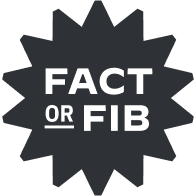| Original photo by Greg Balfour Evans/ Alamy Stock Photo |
| The original name of the Bank of America was "Bank of Italy." | Born to Italian immigrants in San Jose, California, in 1870, A.P. Giannini became a successful produce merchant. He married into a prominent San Francisco family, through which he joined the board of the Columbus Savings & Loan bank. However, the headstrong newcomer clashed with other board members over the practice of lending money solely to affluent clients, and in October 1904, Giannini established his Bank of Italy in a saloon across the street from Columbus Savings & Loan.
Thanks to the aggressive courtship of "the little fellow," i.e., working-class immigrants ignored by other banks, Bank of Italy accrued more than $700,000 in deposits in its first year of business. And when a massive earthquake destroyed much of San Francisco in April 1906, Giannini was shrewd enough to steer his cash to safety from the looting masses. Setting up a makeshift bank on a North Beach wharf, Giannini helped rebuild the community by extending loans on handshake deals. He continued to do so even after the Panic of 1907 threatened to undermine financial progress. By the end of the decade, the astute businessman began buying other banks en route to founding the country's first statewide banking system. In 1928, he orchestrated a merger between the Bank of Italy and the smaller Bank of America Los Angeles.
Giannini was well prepared to weather the storm that followed the stock market crash of 1929, and he responded by relaunching his enterprise as the Bank of America National Trust and Savings Association in 1930. By the time he died in 1949, Bank of America counted more than 500 branches and $6 billion in assets — the bank of the "little fellow" having clearly outgrown its roots to stand as the world's then-largest bank.
|
|
 | | Bank of America issued the first wide-scale, all-purpose credit card. | | |
|
|
| Bank of America issued the first wide-scale, all-purpose credit card. |  |  |
|
|
|
|
|
0 Comments:
Post a Comment
<< Home